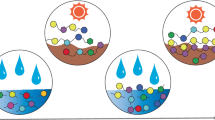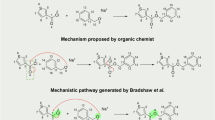Abstract
THE discovery of racemic acid by Karl Kestner or Koestner, a chemical manufacturer at Thann, in the Vosges, and the elucidation of its relationship to ordinary tartaric acid, more especially by Gay-Lussac, Berzelius and Pasteur, constitute one of the most important episodes in the history of organic chemistry. Upon an account of the nature of racemic acid there is no need, and we do not intend, to enter here ; but, owing to the confusion which exists in chemical literature regarding the authorship of the name racemic acid (variously attributed to Gay-Lussac, Gmelin and Berzelius), a note on this subject may be of interest to students of the history of chemistry.
This is a preview of subscription content, access via your institution
Access options
Subscribe to this journal
Receive 51 print issues and online access
$199.00 per year
only $3.90 per issue
Buy this article
- Purchase on SpringerLink
- Instant access to the full article PDF.
USD 39.95
Prices may be subject to local taxes which are calculated during checkout
Similar content being viewed by others
References
Ann. Chim., 37, 441 (1828).
Ann. Chim., 46, 113 (1831).
Records of General Science, ii., 97, 161, 241 (1835).
Kongl. Vetensk. Acad. Handl., 49 (1830).
Ann. Chim., 61, 488 (1861).
Schweigger's J., 49, 238 (1827).
Author information
Authors and Affiliations
Rights and permissions
About this article
Cite this article
FINDLAY, A. Use of the Name 'Racemic Acid'. Nature 140, 22 (1937). https://doi.org/10.1038/140022a0
Issue date:
DOI: https://doi.org/10.1038/140022a0



